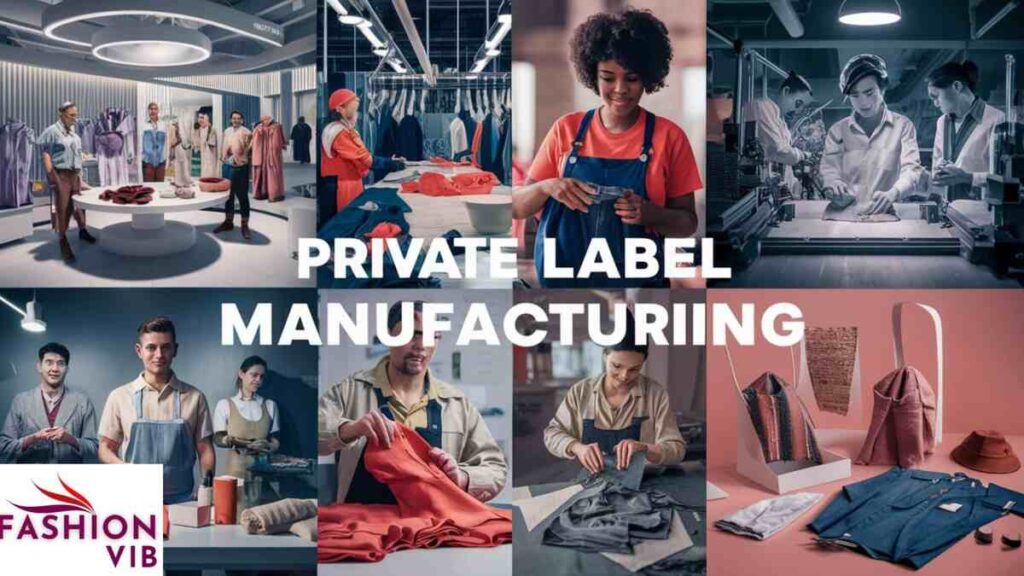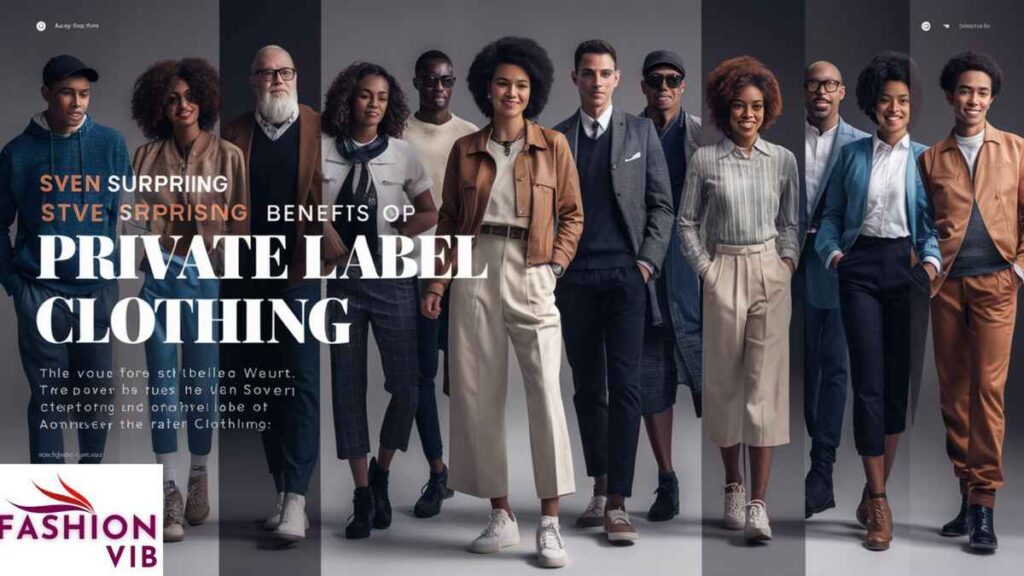In today’s fast paced and competitive fashion industry, creating a unique brand is essential for success. One of the most effective strategies for businesses is partnering with a private label clothing manufacturer. This approach allows companies to focus on branding and marketing while outsourcing production to experts. In this article, we’ll explore the benefits of private label clothing, the business advantages it offers, and actionable insights on how it can elevate your fashion brand.
What Is Private Label Clothing Manufacturing?

Definition and Overview
Private label clothing refers to garments designed and produced by a manufacturer but sold under another company’s brand. This process allows retailers to offer exclusive product lines without investing in manufacturing facilities. Private label brands are common in various sectors, from boutiques to department stores, providing tailored solutions to meet specific market demands.
Key Features
| Feature | Description |
|---|---|
| Brand Ownership | Complete control over design, branding, and packaging. |
| Custom Product Designs | Apparel made to meet specific client requirements. |
| Exclusive Products | Unique offerings that differentiate your brand. |
| Manufacturing Process | Efficient production managed by experts in the field. |
Benefits of Using a Private Label Clothing Manufacturer

Branding Control
Partnering with a private label clothing manufacturer gives you total authority over your brand identity. You can define:
- Design elements: Patterns, materials, and hues that resonate with your audience.
- Packaging: Branded tags, labels, and wrapping to enhance brand recognition.
- Marketing strategy: Exclusive product lines tailored to your target market.
Example: A boutique retailer used private label fashion to launch a collection featuring ecofriendly fabrics, appealing to sustainability conscious customers.
Cost Efficiency

One of the primary benefits of private label clothing is cost effectiveness. By outsourcing production to custom clothing manufacturers, businesses can:
- Save on production costs: Bulk order savings reduce per unit expenses.
- Eliminate infrastructure needs: No need for factories or equipment.
- Focus on core operations: Spend more time on branding and marketing.
Case Study:
A small online retailer reduced its clothing production costs by 25% after switching to a private label business model.
Higher Profit Margins
With private label apparel, you control the retail price, allowing you to optimize profit margins. By offering exclusive products, you can:
- Set competitive pricing while maintaining high margins.
- Avoid price wars by positioning your brand as unique.
- Use strategic marketing to boost perceived value.
Tip: Highlight quality and exclusivity in your advertising to justify premium pricing.
Enhanced Quality Assurance

Private label manufacturers ensure rigorous quality checks during production. This includes:
- Ensuring longevity and quality of materials.
- Adhering to modern technology in apparel production.
- Aligning with your brand’s specifications for tailored fashion solutions.
Fact: Consistent quality builds trust and fosters customer loyalty.
Product Customization
Customization is a significant advantage of private label fashion. Businesses can create:
- Personalized clothing lines to match customer preferences.
- Collections that follow current fashion trends.
- Products with unique designs, sizes, and materials.
Example: Seasonal collections tailored to niche markets can drive sales during peak periods.
Scalability

The manufacturing scalability of private label clothing is ideal for growing businesses. You can:
- Adjust production volume based on demand.
- Test new product lines without large initial investments.
- Expand operations quickly without infrastructure upgrades.
Real World Insight: Many startups have scaled globally by leveraging the flexibility of private label clothing manufacturers.
Faster Time to Market
Private label manufacturers streamline production, allowing brands to:
- Launch new collections rapidly.
- Respond quickly to market competitiveness and trends.
- Meet seasonal or event specific demands.
Pro Tip: A fast time to market strategy can help capture trend driven customer bases.
Competitive Edge

Standing out in the crowded fashion industry is crucial. With private label solutions, you can:
- Create distinctive designs that competitors can’t replicate.
- Develop a strong fashion branding strategy.
- Build a reputation for quality and exclusivity.
Quote: “A brand is no longer what we tell the consumer it is it’s what consumers tell each other it is.” Scott Cook
Sustainability Opportunities
Private label manufacturers can align with sustainable business practices by:
- Using eco friendly materials.
- Adopting waste reducing production techniques.
- Offering transparency in their supply chain.
Fact: Over 60% of consumers prefer brands that prioritize sustainability in their products.
Simplified Inventory Management

Managing inventory is more straightforward with control over inventory. This approach enables:
- Production based on demand forecasts, reducing overstock.
- Better cash flow management.
- Customization of quantities for niche markets.
Example: Retailers who adopt on demand production minimize unsold inventory losses.
Common Challenges and Solutions
| Challenge | Solution |
|---|---|
| Finding the right manufacturer | Vet manufacturers based on reviews, samples, and expertise. |
| Managing minimum order quantities | Negotiate smaller runs for new product testing. |
| Ensuring consistent quality | Establish clear guidelines and conduct regular audits. |
How to Get Started with Private Label Clothing
- Research Manufacturers:
- Use directories like Alibaba, Thomas Net, or Maker’s Row.
- Look for manufacturers that align with your values and quality standards.
- Define Your Brand:
- Establish a branding strategy in fashion that resonates with your target audience.
- Decide on design elements, materials, and other specifics.
- Communicate Effectively:
- Share clear product specifications and expectations.
- Regularly review samples before final production.
- Monitor the Process:
- Stay involved during production to ensure adherence to your standards.
Conclusion
Working with a private label clothing manufacturer offers transformative benefits for businesses. From cost efficiency and branding control to scalability and competitive advantages, this model empowers companies to thrive in the competitive fashion industry. By leveraging the expertise of custom clothing manufacturers and focusing on quality control in apparel, you can build a distinctive, profitable brand.

James is a seasoned fashion blogger with over a decade of experience in the industry. His keen eye for trends and insightful commentary make him a trusted voice in fashion. Passionate about style evolution, James combines his extensive knowledge with a unique perspective, offering readers fresh and engaging content. Follow his journey as he navigates the ever-changing world of fashion on Fashion Vib.







